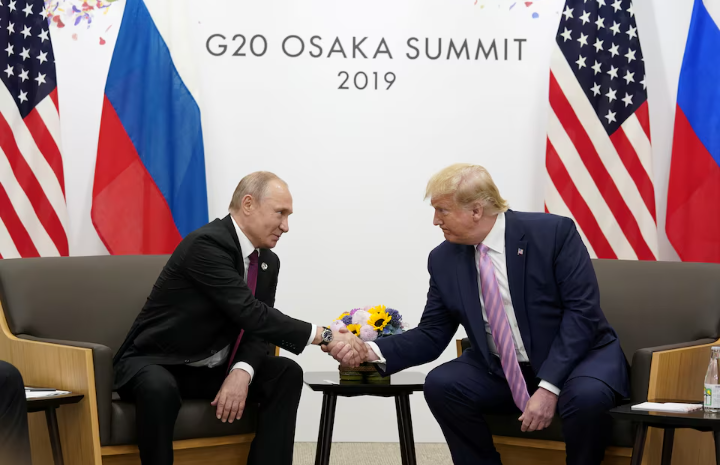U.S. President Donald Trump has announced a major step toward ending the war in Ukraine, revealing that he will speak with Russian President Vladimir Putin on Tuesday. The discussion is expected to focus on territorial concessions and control of the Zaporizhzhia nuclear power plant, the largest in Europe.
Speaking to reporters aboard Air Force One, Trump expressed optimism about the negotiations. “We want to see if we can bring that war to an end,” he said. “Maybe we can, maybe we can’t, but I think we have a very good chance.”
This follows a U.S.-proposed 30-day ceasefire agreement that Ukraine has already accepted. However, key issues—such as land division and Ukraine’s future NATO status—remain major sticking points.
What’s at Stake in the Peace Talks?
The ceasefire talks come amid ongoing heavy aerial strikes between Ukraine and Russia. Over the weekend, Russia moved closer to driving Ukrainian forces out of Kursk, an area it has been battling for months.
Trump has hinted at negotiating land and power plant control as part of the deal, but he provided no specifics. The Zaporizhzhia nuclear power plant, which has been under Russian occupation, remains a contentious issue. Both Russia and Ukraine have accused each other of endangering the plant’s safety.
The White House has confirmed that the facility will be a discussion point in Trump’s call with Putin. However, Kremlin spokesperson Dmitry Peskov declined to comment on any territorial negotiations.
Putin’s Response and Russia’s Demands
The Kremlin has confirmed that Putin will speak with Trump, but Moscow’s expectations for the talks remain unclear. On Friday, Putin sent Trump a message through U.S. envoy Steve Witkoff, expressing “cautious optimism” about a possible ceasefire agreement.
However, Russia’s Deputy Foreign Minister Alexander Grushko has made it clear that Moscow will demand “ironclad” guarantees that Ukraine will not join NATO. Russia also wants to maintain control over the territories it has seized since 2014, including Crimea and parts of eastern Ukraine.
On the other hand, Ukraine’s President Volodymyr Zelenskiy insists that his country’s sovereignty is non-negotiable. He has not publicly responded to Trump’s proposed land concessions.
International Reactions and the Path Forward

While Trump’s efforts have been met with interest, world leaders remain skeptical. The European Union’s foreign policy chief, Kaja Kallas, criticized Russia’s demands, arguing they indicate Moscow is not serious about peace.
Finland’s Foreign Minister Elina Valtonen echoed this sentiment, stating that the responsibility to make concessions should be on Russia, not Ukraine. Meanwhile, British Prime Minister Keir Starmer has suggested that a coalition of nations—including Britain and France—may be willing to send peacekeeping troops to Ukraine if a deal is reached.
Russia, however, has ruled out any foreign peacekeepers until the war officially ends. Russian officials have stated that any such deployment would make these forces direct participants in the conflict.
With Trump and Putin set to talk, the world is watching closely. Will this be a breakthrough moment for peace, or just another failed attempt at ending the war?



